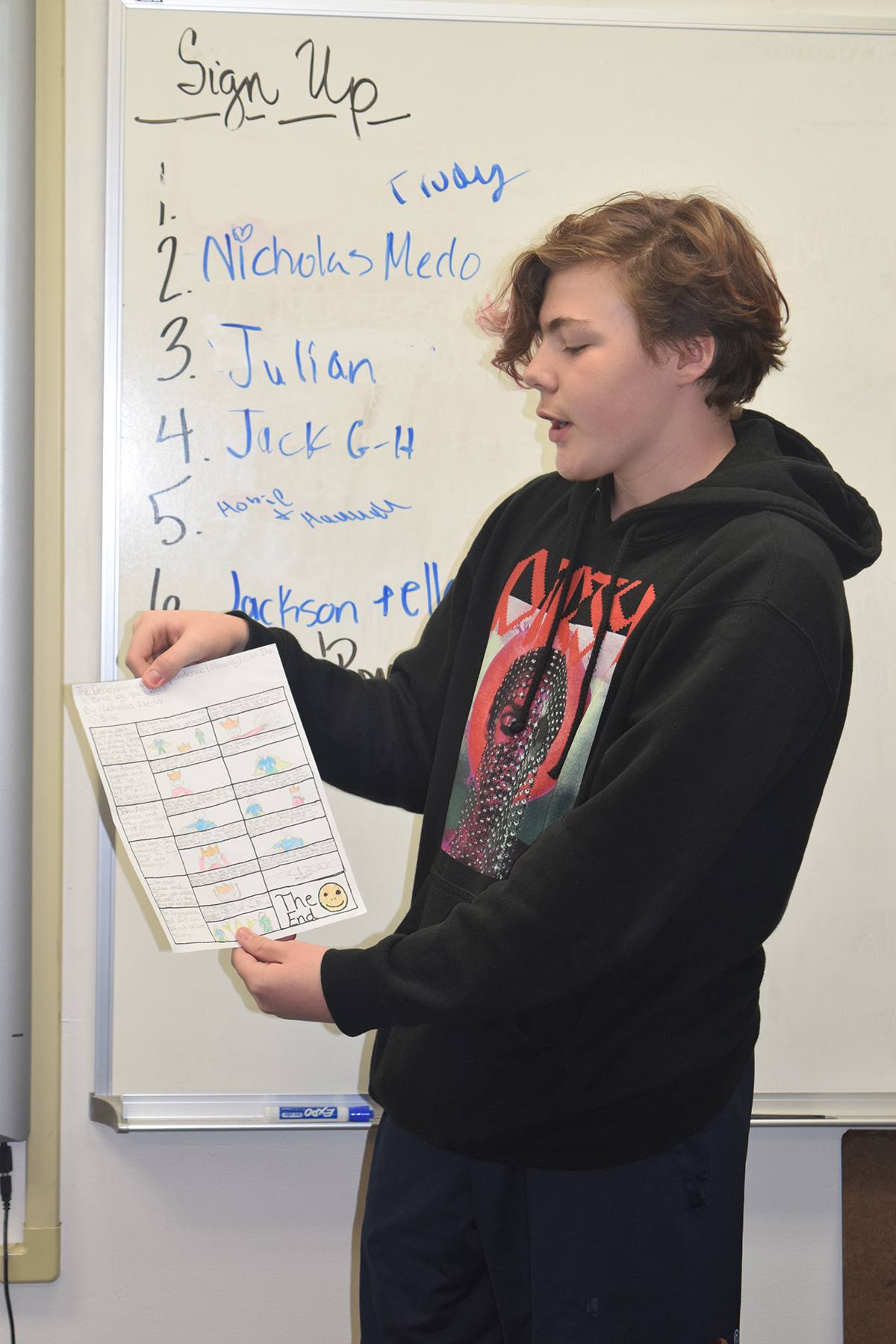Students in Gretchen Roberts’s 8th grade history course, American Government and Civics, look at the entire American experience in the context of history and the current events of the day. “It’s not what you would typically think of when you think of a history class,” Gretchen notes. “It’s about the foundations of our government, its establishment, and its implications on citizenship now.”
The class begins the year with the foundational texts that influenced the colonists in their writings on liberty and equality, such as the Magna Carta and Thomas Paine’s “Common Sense.” And as the students analyze the Constitution and the Bill of Rights, they draw from current issues to interpret and discuss each article and amendment.
“It’s been very timely with so many tragic mass shootings for students to parse the Second Amendment,” adds Gretchen. “We’ve also covered the Supreme Court confirmation process since that has been in the headlines lately and the students learned the criteria or lack of criteria outlined in the Constitution to be a Supreme Court justice. For instance, a justice need not have a law degree, which was surprising to students.”
As students look deeper into these texts, Gretchen asks the students to choose a Supreme Court case that relates to their lives directly, bringing every student’s voice into the curriculum. The projects often become personal and weighty, including cases on gender discrimination, marriage equality, and voting rights.
Units on slavery figure into the course throughout the year highlighting the impacts it has on present day issues of economics, discrimination, mass incarceration, and voter disenfranchisement. The class reviews primary texts such as slave journals and makes use of the Southern Poverty Law Center’s free Teaching Tolerance curriculum.
“It has been eye-opening and disheartening,” notes Gretchen. “The reason it hasn’t been taught with more rigor in past generations is that it is shameful. But we should learn from those lessons of history so we don’t perpetuate it.” Despite the difficulty of these topics, she notes that her middle school students exhibit an openness to dialogue that she hopes stays with them beyond the course.

